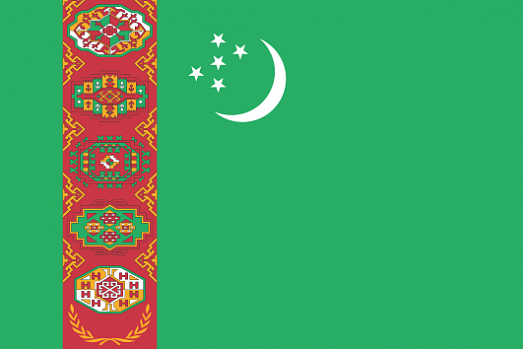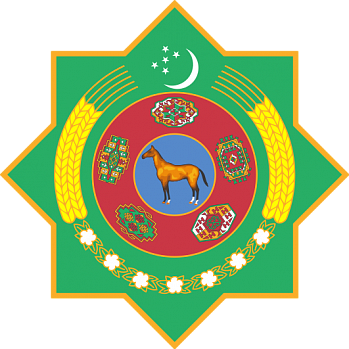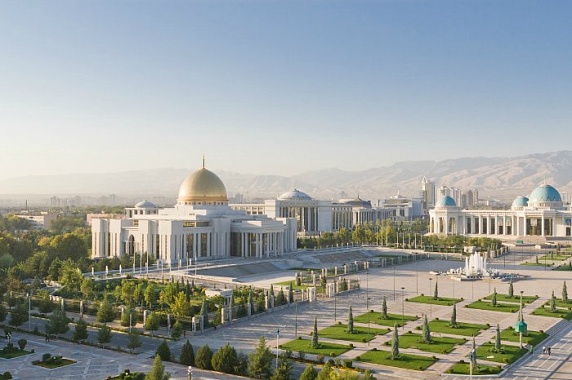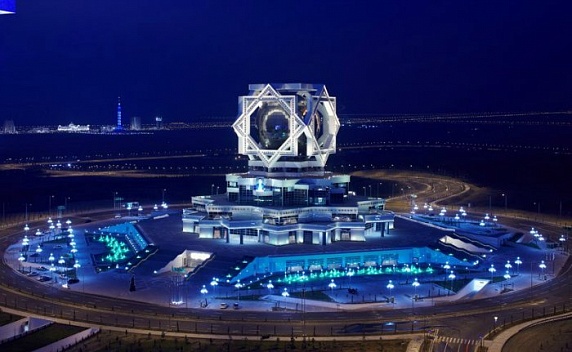 Turkménistan
Turkménistan
Foreign Minister Sergey Lavrov’s comments for the media and answers to questions from the media following talks with Foreign Minister of Turkmenistan Rashid Meredov, Ashgabat, February 3, 2015
Our talks with Turkmenistan's President Gurbanguly Berdymukhamedov and Deputy Prime Minister and Foreign Minister Rashid Meredov in Ashgabat went well.
We discussed the entire range of our bilateral relations, including the political dialogue, which is fairly intensive at the high and highest levels, and our economic and trade cooperation. The Intergovernmental Commission is doing good work. We emphasised our interest in further enhancing the already intensive ties in the humanitarian and cultural spheres.
We have discussed international affairs, with a focus on Central Asia, Afghanistan, and our cooperation in the UN and the OSCE, including in connection with the forthcoming anniversaries, namely, the 70th anniversary of the victory in WWII, the 70th anniversary of the United Nations, the 40th anniversary of the Helsinki Final Act and our other common interests in international formats.
I'm satisfied with our talks and the Plan of Ministerial Consultations that we signed today. The plan includes numerous activities and focuses on practical coordination of our positions.
Question: Did you discuss the protection of people with dual citizenship (Russian and Turkmen)?
Sergey Lavrov: We will continue consultations on this matter in accordance with the directives of our presidents, which they issued at the end of their meeting in Astrakhan on September 29, 2014.
Question: A representative of the Ukrainian Foreign Ministry, Yevgeny Perebiynis, said that Kiev is expecting Moscow to come up with an official response regarding the disruption of the Minsk talks, because Moscow is one of the signatories to the Minsk agreements. Also today, the Ukrainian authorities decided that beginning March 1 Russian citizens will not be able to stay in or enter Ukraine using their domestic passports.
Sergey Lavrov: I cannot comment on this statement by a representative of the Foreign Ministry of Ukraine, because they make a lot of statements that eventually turn out to be false. It is imperative to continue the negotiations, rather than point a finger at Russia or the militias. The latter must be talked to as parties to the negotiation process, not as someone who is perceived as some kind of an add-on to the Contact Group. They are full-fledged participants in the Ukrainian domestic conflict and should be able to directly express their interests, and the Kiev authorities must fully take them into account.
Our main concern is for the parties to cease fire and withdraw heavy weapons in accordance with the agreement that was reached at a time when President Putin's initiative was supported and was later enshrined in the Berlin Declaration of the foreign ministers of Russia, Germany, France and Ukraine, and which was ignored the very next day by the Ukrainian leadership, which resumed the hostilities. We must be guided not by considerations of false prestige, but primarily by the interests of saving human lives and establishing peace in eastern Ukraine.
Regarding the statement on introducing foreign passport-based entry to Ukraine for Russian citizens beginning March 1, if I heard right, Prime Minister Yatsenyuk claimed that this was an initiative coming from President Putin, who supposedly expressed this idea some time ago, and now Kiev has heard it.
We are preparing an official statement by the Russian Foreign Ministry. What Mr Yatsenyuk said is not true. Indeed, we are introducing foreign passport-based travel regulations with the majority of the CIS countries, while keeping such travel free from visa requirements. However, given the crisis raging in that country, we are going to make an exception for Ukraine. Our Ukrainian colleagues have been informed about this.








